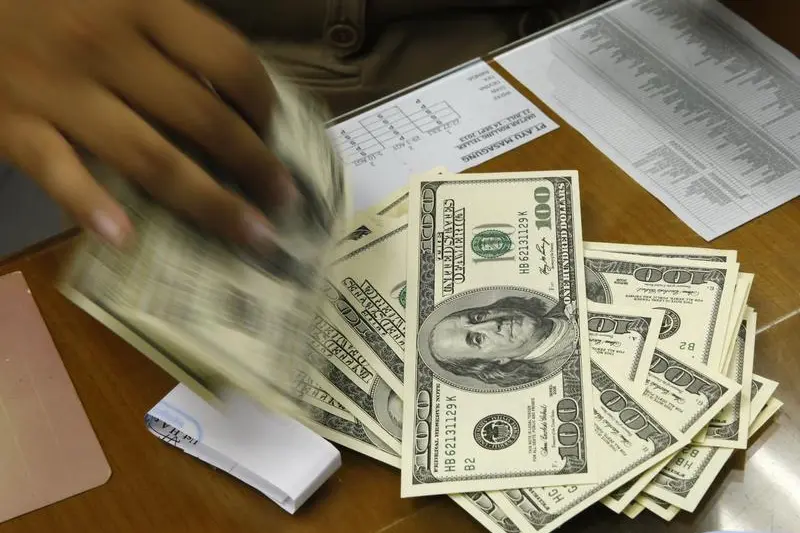PHOTO
SINGAPORE - The dollar steadied in a cautious Asia session on Friday but it is set to log its worst week of the year as investors welcomed the Joe Biden administration by seeking out riskier assets.
Against the Japanese yen, the dollar has fallen 0.3% this week and it has shed 0.8% against the euro, the largest weekly percentage drops since mid-December.
The dollar last traded steady at $1.2172 per euro and bought 103.54 yen. It advanced a little against the Australian and New Zealand dollars but not enough to derail weekly gains for the Antipodeans, of 0.6% for the Aussie and 0.9% for the kiwi.
Biden, whose Democratic Party controls the U.S. Congress, is seeking to borrow and spend to support the economy. The anticipation of stimulus has driven equities to record highs, while inflation expectations have held real yields in check.
Central banks from Tokyo to Frankfurt, Ottawa and Oslo have also this week left policy settings untouched and begun to cautiously talk up recovery prospects, while the U.S. Federal Reserve looks committed to low rates for a very long time.
"The underlying driver of Aussie, kiwi and Canadian dollar strength is that their central banks will not be able to keep policy rates at current levels in a global recovery," said Societe Generale strategy chief Kit Juckes.
"They'll all tighten long before the Fed."
The Canadian dollar slipped 0.2% to 1.2671 per dollar with a dip in oil prices on Friday, but it is 0.5% higher this week and hit an almost three-year high on Thursday after the Bank of Canada surprised some traders by not trimming rates.
Sterling eased 0.2% from Thursday's 2-1/2 year peak to sit at $1.3707. It is supported by the hope that coronavirus vaccinations can underpin an economic recovery later in the year.
Bitcoin is travelling toward its worst week since September as regulatory risk and profit-taking deepen its pullback from record levels.
TRANSMISSION RESUMED
The dollar's losses this week might call time on the bounce that has carried the dollar index about 1% above the three-year trough it touched in the first trading week of 2021, and settle the greenback into a downward trend once more.
The index was flat on Friday at 90.110 and 0.7% lower for the week. Forecasts for dollar weakness are widely held, and crowds are betting against the greenback, with the value of dollar shorts hitting an almost ten-year high last week.
"We expect the multi-month move lower in the dollar to continue in coming months," Nomura analysts said in a note, citing U.S. trade and budget deficits and their expectation for gains in the euro and Chinese yuan.
"We believe that, as the U.S. economy recovers in a risk-positive environment, the balance of payments could become less supportive of the dollar," they added, especially if Biden lifts taxes and global investment flows head elsewhere in response.
Data published in Asia on Friday showed Japanese inflation slumping and Australia's consumer spending stalling.
However stronger-than-expected inflation in New Zealand sent the yield on 10-year kiwi government bonds to a nine-month high, prompting Kiwibank to follow Westpac and drop its forecast for additional rate cuts.
"Rampant advances in the housing market have surely taken a negative cash rate off the table," Kiwibank's chief economist, Jarrod Kerr, said in a note to clients.
The currency fell 0.4% against the dollar with the broader mood on Friday, but inched higher against the Aussie. The kiwi has rallied 30% on the dollar since last March's decade low.
Preliminary purchasing managers' index figures are due later on Friday across Europe and the United States, and weakness is expected as fresh waves of coronavirus infection have driven new lockdowns and curtailed growth.
(Reporting by Tom Westbrook; Editing by Ana Nicolaci da Costa and Karishma Singh) ((tom.westbrook@tr.com; +65 6318 4876;))





















